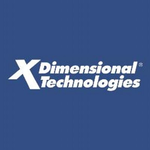Description

Eclipse

UIS Policy Administration
Comprehensive Overview: Eclipse vs UIS Policy Administration
Eclipse UIS (Universal Insurance Solution) Policy Administration is a comprehensive software platform typically used by insurance companies to manage various aspects of policy administration. Here's a comprehensive overview of its primary functions, target markets, market position, and differentiating factors:
a) Primary Functions and Target Markets
Primary Functions:
-
Policy Management: Eclipse UIS handles the entire policy lifecycle, from initial quote to issuance, endorsements, and renewals. It facilitates smooth management of policy records and transactions.
-
Underwriting Support: The platform enables underwriters to assess risk efficiently with built-in analytics and decision-support tools, aiding in making informed underwriting choices.
-
Billing and Premium Collection: It automates the billing processes, including premium invoicing, collection, and installment payments, to ensure accuracy and compliance.
-
Claims Management Integration: While focused on policy administration, Eclipse UIS often integrates with claims management systems to ensure seamless data flow and customer service.
-
Compliance and Reporting: The system ensures that all policy policies comply with industry regulations and provides comprehensive reporting features for auditing and performance analysis.
-
Customer and Agent Portals: Offers self-service portals for customers and agents to view policy information, status updates, and request support online.
Target Markets:
- Insurance Companies: Primarily targets medium to large insurance companies across various sectors, including life, health, property, and casualty insurance.
- Brokerage Firms: Agencies involved in the selling and management of multiple insurance lines may also use the platform for back-office efficiency.
b) Market Share and User Base
Here, the comparison will be more hypothetical as specific market share data, particularly for proprietary and niche products like Eclipse UIS, can be limited:
-
Market Share: Policy administration systems like Eclipse UIS compete with other well-known systems such as Guidewire, Duck Creek Technologies, and Sapiens. While Eclipse UIS may not be as widely recognized as some top players, its presence in niche markets or specific regions could be robust due to specialized capabilities or partnerships.
-
User Base: Likely caters to a diverse range of clients, from regional insurers to potentially larger players that require customizable and flexible solutions. The user base would be characterized by insurers looking to modernize their traditional policy administration processes with a focus on integration and flexibility.
c) Key Differentiating Factors
-
Customization and Flexibility: Eclipse UIS often offers significant customization options, allowing insurers to tailor the system to meet their specific operational requirements, unlike some more rigid standardized solutions.
-
Integration Capabilities: Known for its strong integration capabilities, Eclipse UIS can work seamlessly with other ancillary systems used by insurance companies, such as claims, billing, and CRM software, providing a more unified ecosystem.
-
Cost-Effectiveness: Comparatively, Eclipse may offer a more cost-effective solution than larger enterprise systems, making it appealing to mid-sized companies or those with budget constraints.
-
User-Friendliness: Emphasis on intuitive user interface design and ease of use can make it preferable for companies looking to implement systems with minimal training overheads.
-
Scalability: The solution is typically designed to grow with the company, effectively scaling up as the business expands its operations or enters new markets.
-
Regional or Niche Features: For some insurers, particularly in regions with unique regulatory or operational requirements, Eclipse UIS may offer specialized features or functionality that are not available in more broadly focused software.
Understanding these differentiating aspects can help insurers choose a solution like Eclipse UIS when they require adaptability, expansive integration potential, and a balance between cost and functionality, especially in competitive or evolving insurance markets.
Contact Info

Year founded :
1999
Not Available
Not Available
United Kingdom
Not Available

Year founded :
Not Available
Not Available
Not Available
Not Available
Not Available
Feature Similarity Breakdown: Eclipse, UIS Policy Administration
To provide a detailed comparison between Eclipse and UIS Policy Administration, I'll discuss their typical features based on general industry practices, but specific details might vary based on their latest versions or customizations.
a) Core Features in Common
Both Eclipse and UIS Policy Administration typically share several core features common to insurance policy administration systems:
-
Policy Management:
- Ability to create, modify, and renew insurance policies.
- Handling different policy types and configurations.
-
Underwriting:
- Rules engine to assess risk and determine policy premiums.
- Automated underwriting with manual review capabilities.
-
Billing and Invoicing:
- Integration with financial systems for issuing invoices and managing payments.
- Support for multiple payment plans and methods.
-
Claims Management:
- Process claims efficiently from initiation to settlement.
- Track and manage claim status and details.
-
Customer Management:
- Maintain customer records and contact information.
- Interaction history tracking and CRM integration.
-
Reporting and Analytics:
- Standard and customizable reporting features.
- Data analytics for performance monitoring and strategic decision-making.
-
Compliance and Regulatory Support:
- Support for industry-specific regulatory requirements.
- Automated updates for compliance management.
b) User Interface Comparison
The user interfaces of policy administration systems like Eclipse and UIS might differ based on design philosophies and user experience approaches:
-
Eclipse: Typically, Eclipse products are known for their modular design, which may offer a more flexible user interface with drag-and-drop capabilities and customizable dashboards. The interface is usually modern, intuitive, and geared towards providing a seamless workflow.
-
UIS Policy Administration: UIS interfaces might focus on simplicity and ease of use, offering straightforward navigation with clear menus and options. UIS might prioritize minimalistic design elements that reduce user learning curves and enhance usability.
Both interfaces are likely web-based and responsive to some extent, but the design specifics will depend on the branding and software evolution over time.
c) Unique Features
Unique features often define the competitive edge of one product over another:
-
Eclipse:
- Custom Integration Capabilities: Offering extensive APIs for integration with third-party applications can be a forte for Eclipse, enabling more comprehensive ecosystem connectivity.
- Advanced Automation Features: Capabilities such as Robotic Process Automation (RPA) for routine workflows might be more pronounced.
-
UIS Policy Administration:
- Vertical Specialization: UIS may offer deeper specialization in specific types of insurance products or niches, offering unique features tailored for those markets.
- Scalability and Flexibility: Ability to rapidly scale operations or adjust to market changes can be a key differentiator depending on the deployment architecture.
It's advisable to check the latest product updates, technical specifications, and user reviews for the most current feature sets and competitive differentiators.
Features

Not Available

Not Available
Best Fit Use Cases: Eclipse, UIS Policy Administration
Eclipse, UIS Policy Administration, and similar solutions are typically designed to serve specific needs in the realms of insurance and financial services. Let's explore the best fit use cases for these products:
A) Eclipse Use Cases
Types of Businesses or Projects:
-
Insurance Companies: Eclipse is well-suited for insurance firms looking to efficiently manage complex policy lifecycles. This includes tasks such as issuing, renewing, and managing claims for a wide range of insurance products.
-
Underwriting Agencies: Agencies focused on underwriting processes benefit from Eclipse's ability to streamline operations and improve decision-making capabilities.
-
Reinsurance Firms: Companies involved in reinsurance can leverage Eclipse to handle intricate policy structures and risk management more effectively.
-
Large-scale Policy Management Projects: For organizations managing large volumes of policies, Eclipse offers robust support for scalability and complex policy structures.
Scenarios:
-
Digital Transformation Projects: Companies aiming to modernize their policy administration through digital transformation can find Eclipse a valuable tool due to its modern architecture and flexibility.
-
Regulatory Compliance Initiatives: Businesses needing to adhere to stringent compliance requirements can utilize Eclipse for its structured and compliant policy management capabilities.
B) UIS Policy Administration Use Cases
Scenarios:
-
Small to Medium Insurance Providers: UIS Policy Administration is often a preferred option for smaller or mid-sized insurance providers that require a comprehensive yet straightforward solution for policy administration.
-
Specialty Insurers: Companies that deal with niche or specialty insurance products may find UIS Policy Administration beneficial due to its adaptability to various policy types and custom needs.
-
Rapid Deployment Needs: In scenarios where businesses need to quickly implement a policy administration system without extensive customization, UIS Policy Administration offers rapid deployment options.
-
Cost-Sensitive Projects: UIS Policy Administration can be a preferred choice for organizations prioritizing cost-effectiveness, as it often comes with lower upfront costs compared to more complex systems.
D) Industry Verticals and Company Sizes
-
Different Industry Verticals:
- Life Insurance: Both solutions can cater to life insurance companies but with different capabilities; Eclipse for large scale and complex portfolios, UIS for more straightforward implementations.
- Property and Casualty (P&C) Insurance: Eclipse may be more suitable for diverse P&C products offering due to its robust back-end, whereas UIS is ideal for standard P&C offerings.
- Health Insurance: Given the complexity and regulatory requirements, Eclipse would cater to large health insurers, whereas UIS would suit smaller or less complex health insurance products.
-
Company Sizes:
- Large Enterprises: Eclipse is designed to handle the demanding needs of large insurance firms with complex portfolios and extensive operations.
- Small to Mid-sized Businesses: UIS Policy Administration tends to be more appealing to smaller companies that require a balance between functionality and cost.
Both Eclipse and UIS Policy Administration solutions cater to varying needs based on company size, complexity requirements, and project scope. They provide specialized features and flexibility, allowing businesses across different industry verticals to efficiently manage their policy administration processes.
Pricing

Pricing Not Available

Pricing Not Available
Metrics History
Metrics History
Comparing undefined across companies
Conclusion & Final Verdict: Eclipse vs UIS Policy Administration
When comparing Eclipse and UIS Policy Administration, it is important to consider various factors such as functionality, user experience, integration capabilities, customer support, and cost-effectiveness. Below is a comprehensive evaluation leading to a conclusion and final verdict:
a) Best Overall Value:
Considering all factors, UIS Policy Administration tends to offer the best overall value for organizations seeking a comprehensive and scalable solution. While both products have their strengths, UIS often provides a more robust set of features with better integration capabilities, making it suitable for larger organizations with complex needs.
b) Pros and Cons:
Eclipse:
Pros:
- User-Friendly Interface: Eclipse is often praised for its intuitive design and ease of use, making it easier for new users to navigate without extensive training.
- Customizability: Offers flexibility in customizing features to fit specific business processes, which is appealing to smaller organizations or those with unique operational needs.
- Cost: Generally more affordable upfront compared to UIS, which might be appealing for startups or smaller companies.
Cons:
- Limited Scalability: May not scale as effectively for larger organizations with expanding needs.
- Integration Challenges: Can have limitations in terms of integration with certain third-party applications or existing enterprise systems.
- Support and Updates: Some users have reported slower response times from customer support and less frequent updates compared to UIS.
UIS Policy Administration:
Pros:
- Comprehensive Feature Set: Offers a wide range of functionalities, catering well to large organizations with complex policy administration needs.
- Scalability: Designed to handle the demands of growing businesses, providing an infrastructure that supports expansion.
- Strong Integration: Better equipped to integrate with other enterprise systems, supporting seamless data flow across various applications.
Cons:
- Complexity: The complexity of features can result in a steeper learning curve for new users, often requiring more extensive training.
- Cost: Higher initial investment and ongoing costs, which may be a barrier for smaller companies with limited budgets.
- Customization Limitations: Although robust, customization options might be more restricted compared to Eclipse, particularly concerning niche customization needs.
c) Recommendations:
For organizations trying to decide between Eclipse and UIS Policy Administration, the choice should align with specific business requirements:
-
Consider UIS Policy Administration if:
- Your organization is large, or rapidly growing, and requires a scalable solution with comprehensive features.
- You need robust integration capabilities to connect seamlessly with other enterprise systems.
- The budget allows for a more significant initial and ongoing investment for a sophisticated solution.
-
Consider Eclipse if:
- You are a smaller organization or a startup requiring a cost-effective solution with basic functionalities.
- Ease of use and quick implementation are key priorities, without the need for extensive custom features.
- The operational focus is on simplicity and flexibility, allowing for tailored solutions without the need for complex integrations.
Ultimately, the final decision should be driven by a detailed analysis of your organization's specific needs, growth plans, and budget constraints. Engage in trials or demos of each product if possible, and consider feedback from current users to make an informed choice.
Add to compare



